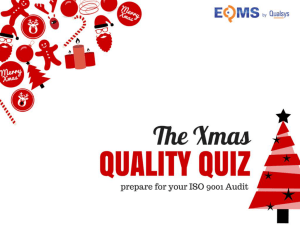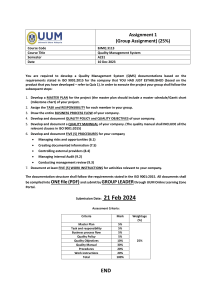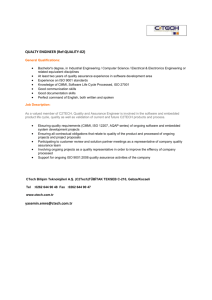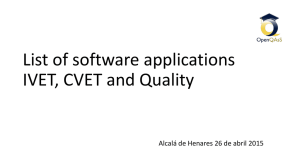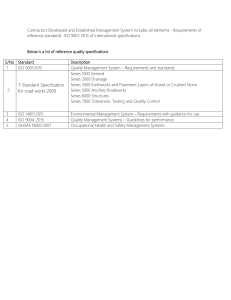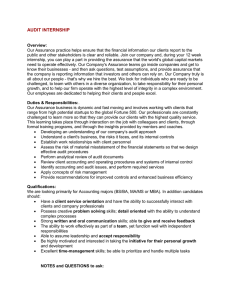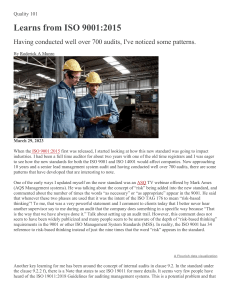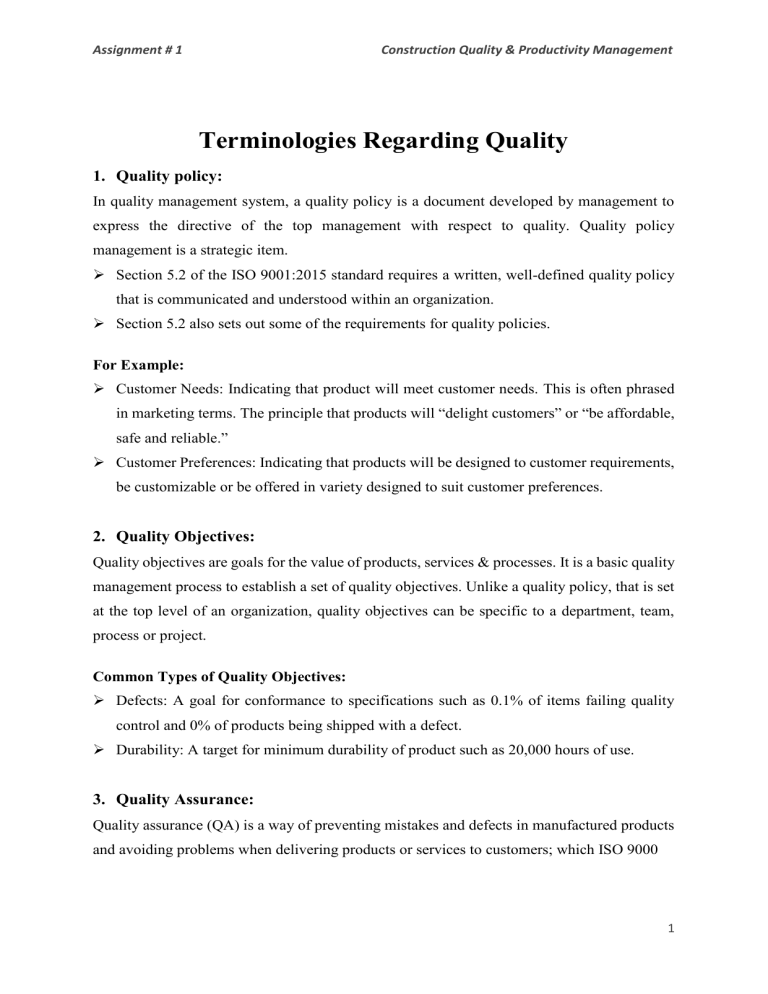
Assignment # 1 Construction Quality & Productivity Management Terminologies Regarding Quality 1. Quality policy: In quality management system, a quality policy is a document developed by management to express the directive of the top management with respect to quality. Quality policy management is a strategic item. Section 5.2 of the ISO 9001:2015 standard requires a written, well-defined quality policy that is communicated and understood within an organization. Section 5.2 also sets out some of the requirements for quality policies. For Example: Customer Needs: Indicating that product will meet customer needs. This is often phrased in marketing terms. The principle that products will “delight customers” or “be affordable, safe and reliable.” Customer Preferences: Indicating that products will be designed to customer requirements, be customizable or be offered in variety designed to suit customer preferences. 2. Quality Objectives: Quality objectives are goals for the value of products, services & processes. It is a basic quality management process to establish a set of quality objectives. Unlike a quality policy, that is set at the top level of an organization, quality objectives can be specific to a department, team, process or project. Common Types of Quality Objectives: Defects: A goal for conformance to specifications such as 0.1% of items failing quality control and 0% of products being shipped with a defect. Durability: A target for minimum durability of product such as 20,000 hours of use. 3. Quality Assurance: Quality assurance (QA) is a way of preventing mistakes and defects in manufactured products and avoiding problems when delivering products or services to customers; which ISO 9000 1 Assignment # 1 Construction Quality & Productivity Management defines as "part of quality management focused on providing confidence that quality requirements will be fulfilled". For Example: Manufacturing: Quality control samples at a headphone manufacturer indicate dropping sound quality in every batch produced over the past 3 weeks. Quality assurance investigates and finds that a supplier has changed the materials in a part. They push the supplier to fix the problem. Food safety: A fast moving consumer goods company requires customer service teams to report any customer complaints that are relevant to food safety to the quality assurance team. The team investigates each issue to determine root cause and implement process and system fixes. 4. Quality Audit: Quality audit is the process of systematic examination of a quality system carried out by an internal or external quality auditor or an audit team. It is an important part of an organization's quality management system and is a key element in the ISO quality system standard, ISO 9001. 5. Quality Control: Quality control can be defined as "part of quality management focused on fulfilling quality requirements." While quality assurance relates to how a process is performed or how a product is made, quality control is more the inspection aspect of quality management. An alternate definition is "the operational techniques and activities used to fulfil requirements for quality." For Example: Vehicles: A high speed train manufacturer runs a detailed test on every component produced that includes manual and automated verifications. Customer Service: A chain of retail stores tests the quality of customer service with secret shoppers. 2
